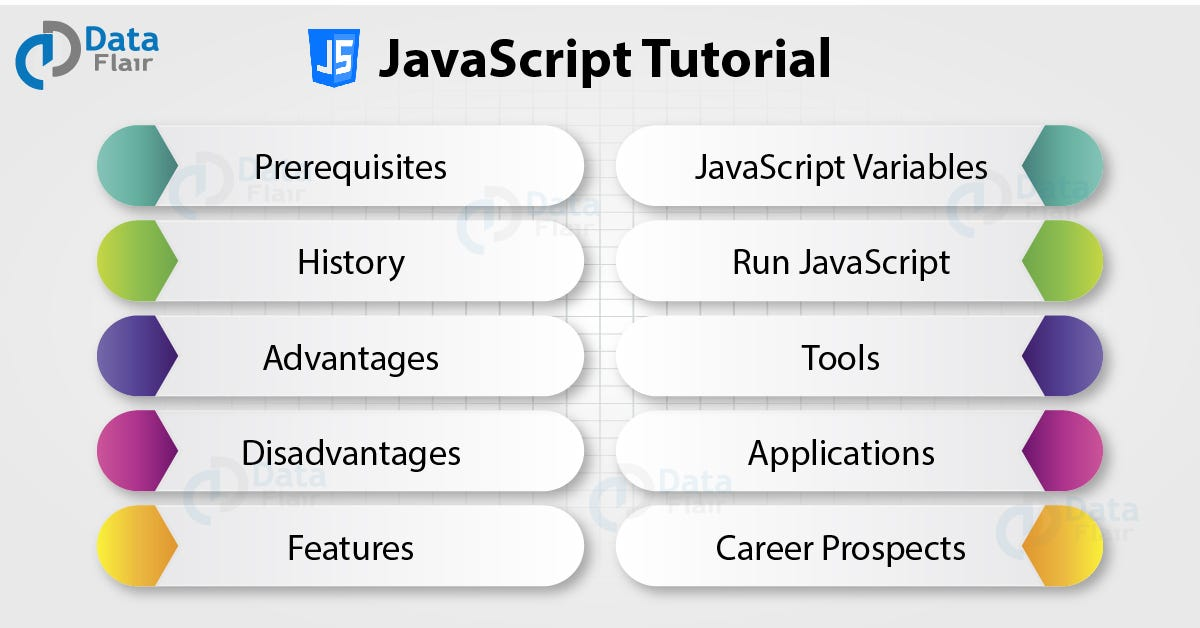"Mastering JavaScript: Unleash the Power of Web Development"
JavaScript The Language of the Web:
JavaScript is a versatile and essential programming language that powers the interactive elements of websites and web applications. It plays a pivotal role in modern web development, making web pages dynamic and user-friendly. In this article, we'll explore the fundamentals of JavaScript, its history, its key features, and its significance in the world of web development.
What is JavaScript?
JavaScript, often abbreviated as JS, is a high-level, interpreted scripting language primarily used for web development. It was created by Brendan Eich while he was working at Netscape Communications Corporation and was first introduced in 1995 as part of the Netscape Navigator web browser. Since then, it has become an integral part of web development, powering the interactivity and functionality of most websites.
Unlike other programming languages like Python or Java, JavaScript is primarily used for client-side scripting. This means that it runs in the user's web browser, allowing developers to manipulate the content of web pages, respond to user actions, and communicate with web servers without requiring a page reload.
A Brief History:
JavaScript was created by Brendan Eich while he was working at Netscape Communications Corporation in 1995. Originally called Mocha and later LiveScript, it was eventually renamed JavaScript to capitalize on the popularity of Java at the time. Despite the name, JavaScript and Java are entirely different languages.
In 1996, JavaScript was standardized by the European Computer Manufacturers Association (ECMA) as ECMAScript, which serves as the official specification for the language. This standardization ensured cross-browser compatibility and paved the way for JavaScript's widespread adoption.
Modern JavaScript:
Over the years, JavaScript has evolved significantly. The release of ECMAScript 6 (ES6) in 2015 introduced many new features and enhancements to the language, such as arrow functions, classes, and template literals, making JavaScript more powerful and developer-friendly.
Today, JavaScript is not limited to web browsers. It can be used in various contexts, including mobile app development (using frameworks like React Native), desktop application development (using Electron), and even Internet of Things (IoT) projects.
Key Features of JavaScript:
- Lightweight: JavaScript is a lightweight, interpreted scripting language, which means it doesn't require compilation before execution. Browsers can execute JavaScript code directly.
- Client-Side Scripting: It primarily runs on the client side, making it ideal for enhancing user interfaces and providing interactivity on web pages. This reduces server load and speeds up web applications.
- Highly Versatile: JavaScript is a versatile language that can be used for a wide range of tasks, from simple DOM manipulation to complex web applications and server-side development (Node.js).
- Object-Oriented: JavaScript supports object-oriented programming (OOP) principles, including encapsulation, inheritance, and polymorphism. It uses prototypes for inheritance rather than traditional class-based inheritance.
- Dynamic Typing: JavaScript is dynamically typed, meaning variable types are determined at runtime. This flexibility allows developers to write code more quickly but requires careful handling to avoid unexpected behavior.
- Event-Driven: JavaScript is inherently event-driven, allowing developers to respond to user interactions, such as clicks, keypresses, and mouse movements, effectively.
- Asynchronous Programming: JavaScript excels at asynchronous programming using callbacks, promises, and async/await, making it suitable for handling concurrent tasks without blocking the main thread.
- Versatile Data Types: JavaScript supports various data types, including numbers, strings, booleans, arrays, and objects, making it flexible for different types of programming tasks.
- DOM Manipulation: The Document Object Model (DOM) is a representation of the structure of a web page. JavaScript can manipulate the DOM, allowing developers to add, remove, or modify elements on a web page dynamically.
- Dynamic Web Pages: JavaScript allows developers to create web pages that can change and update in real-time based on user interactions. This dynamic behavior is crucial for creating engaging and interactive websites.
- Cross-platform Compatibility: JavaScript is supported by all major web browsers, making it a cross-platform language that works consistently across different devices and operating systems.
The Role of JavaScript in Web Development:
JavaScript is an indispensable part of web development for several reasons:
- Enhanced User Experience: JavaScript enables developers to create dynamic and interactive web pages. Features like sliders, pop-up dialogs, and real-time updates are made possible through JavaScript.
- Form Validation: It can validate user input on forms in real-time, reducing the likelihood of errors and improving the overall user experience.
- AJAX: JavaScript powers Asynchronous JavaScript and XML (AJAX), allowing web applications to retrieve and send data to the server without requiring a full page reload. This leads to faster and more responsive web apps.
- Web APIs: JavaScript can interact with various Web APIs, such as the Geolocation API, to provide location-based services, or the Web Audio API, for multimedia applications.
- Server-Side Development: With Node.js, JavaScript can be used for server-side development, allowing developers to use a single language for both client and server-side code, simplifying development.
Learning JavaScript:
If you're interested in learning JavaScript, there are numerous online resources available, including interactive tutorials, documentation, and courses on platforms like Codecademy, MDN Web Docs, and freeCodeCamp. To get started, you'll need a text editor, such as Visual Studio Code, and a web browser to test your code.
Conclusion:
In conclusion, JavaScript is the backbone of modern web development, empowering developers to create engaging and interactive web applications. Its history, versatility, and widespread adoption make it an essential language for anyone looking to build web-based projects. So, whether you're a seasoned developer or just starting your coding journey, JavaScript is a language worth exploring and mastering. Whether you're just starting or are an experienced developer, mastering JavaScript is a valuable skill for building the web applications of tomorrow.

.png)



.png)
.jpg)
Comments
Post a Comment